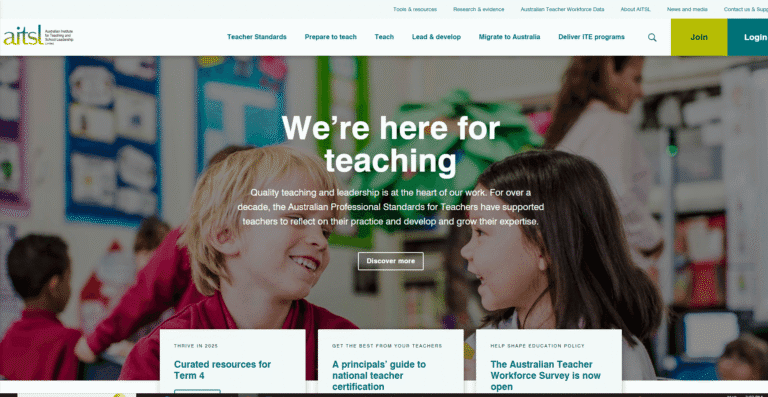This article is for anyone who would like to improve their confidence and skills in preparing for and performing well in job interviews.
Getting invited to a job interview means that you have passed the first hurdle – your application must have made a good impression.
Now you need to prepare yourself for the interview to make sure that you do not waste the opportunity.
In this article, I share 5 tips to prepare for a successful job interview. Before you continue, have you seen my success formular for online learning here? And have you read how you can help your child to get the motivation to read while at home?
Tips for your job interview
Attitude for the job interview
There is a certain attitude that you must carry along to the job interview. To start with, the employer will be looking for someone who cannot only do the job, but someone who shows a real interest and commitment to the organisation itself. This is shown through attitude and the way you talk about the company during the interview.
You may have applied to several organisations for different roles, but you need to show to the employer who has invited you for an interview that it is this role and this organisation above all others that you want to work within.
You need to show that the company and the job matter to you more than the salary you will earn from your job. Talk about the company as if it was established by your grandfather.
Do your homework
Connected to the point above is the fact there is always a question about the company during the interview. Your attitude is revealed in the way you talk about the company and how much you know about it.
In order to be fully prepared for the interview, it is important to research and get as much information about the organisation and the role itself. This will prepare you for any possible questions that you may be asked.
As a result, this will help you feel more confident attending the interview. This research also helps you determine whether this is an organisation and a role that you would like to work within, if you were successful in being offered the job.
I know that for of lack of jobs, many candidates will take any job. But this means that even if you do not like the company, you need to show them that you are the best candidate for the job and that the company is your second home
Read Additional information carefully
The good thing is that many organisations will send additional information about the company and about the role at the application stage or sometimes with the interview invitation. You can also look online at the company website if they have one or obtain company literature.
In Zambia, you can look up companies on https://www.zambiayp.com/ or you can go directly to the company website. If the company is not online, you can find people who work there to give you information.
At the application stage, most organisations will provide a job description and a person specification so that candidates have a full break down of the roles and responsibilities of the job and the skills, experiences and qualifications that the successful candidate will have.
Understanding this information will help you to know what you are expected to talk about in the interview. It also helps you prepare your mind and do a though research about the company and the role.
Re-read this information and rewrite your application form / curriculum vitae in order to respond to the job advert.
Practice your job interview
I cannot overemphasize the importance of job interview practice. It’s one thing to come prepared with a mental answer to a question like, ‘Why should we hire you?’ It’s another challenge entirely to say it out loud in a confident and convincing way.
The first time you try it, you’ll sound garbled and confused, no matter how clear your thoughts are in your own mind! Do it another 10 times, and you’ll sound a lot smoother and more articulate.
As you practice, try to answer some question such:
- What does the organisation provide / make / sell?
- Who are their customers / users?
- What will the job involve?
- What sort of person do you think they want?
- How best would your own skills fit into this role?
Having these questions practiced will give you confidence as you sit in front of your interviewer.
The best way to rehearse is to find people you can express yourself freely. Your friends or family members could make a great choice because you have nothing to fear and they can correct you freely. Feedback for your practice can make a huge difference.
You could also tape record yourself but the best is having someone to do a dummy interview with you.
Think about the job interview itself
After you have practiced and you are confident about the job interview, make sure you focus your thoughts on the interview itself.
You should be notified at the time of your invitation to attend an interview if there is anything they would like you to bring with you or if there are any tests to take. You need to be serious on what you have been asked to carry. Where you are not asked to carry anything, you should at least carry your credentials (please go with original certificates).
Depending on the role that you are applying for, you may be asked to demonstrate some of your skills on the day. Examples could be short presentations, numeracy and literacy tests, problem solving exercises or other practical work based skills assessments. For teachers, you could be asked to write a lesson plan and teach it.
Prepare in advance what is being asked of you, but if unsure contact the organisation before the day to get further clarification. It’s important to contact the organisation to find out more about the interview and what it will take.
Another important thing to remember about job interview itself is the person who will be in charge of interviews or the person who may be interviewing you. Some companies do interviews on their own while other companies ask hiring agents to conduct interviews for them.
If it is your prospective manager, the interview may be more detailed and questions may be more specific to the role. If the personnel manager is interviewing you, it may be less direct or detailed about the role itself, but may be equally as testing.
Remember, in some organizations, there could be one person interviewing you while in other organizations, a group of 3 to 5 personnel could be on the panel. Either way, you do not need to panic. The interviewer will know that you will feel nervous and will want to put you at ease to get the best from you.
Maintain eye contact with the person talking to you at that time. Remember also that the employer(s) who conduct the interview themselves may not do so often, so are likely to be equally as nervous as you are.
Score a success in the first five minutes
There is research supporting the idea that you pass an interview in the first 5 minutes. The rest of the time spend is just for confirming whether you really have what they are looking for. Confidence in the first 5 minutes matters a lot. If you asked a question, it is within the first five minutes that you will score and scoop the day.
Conclusion
You can get a job if you are really good and confident in the interview. These job interview tips can help you land yourself a great job if you follow and practice them. However, if these do not work for you, feel free to search the internet for what will work for you. If you love this content, please share using the social media icons below.







